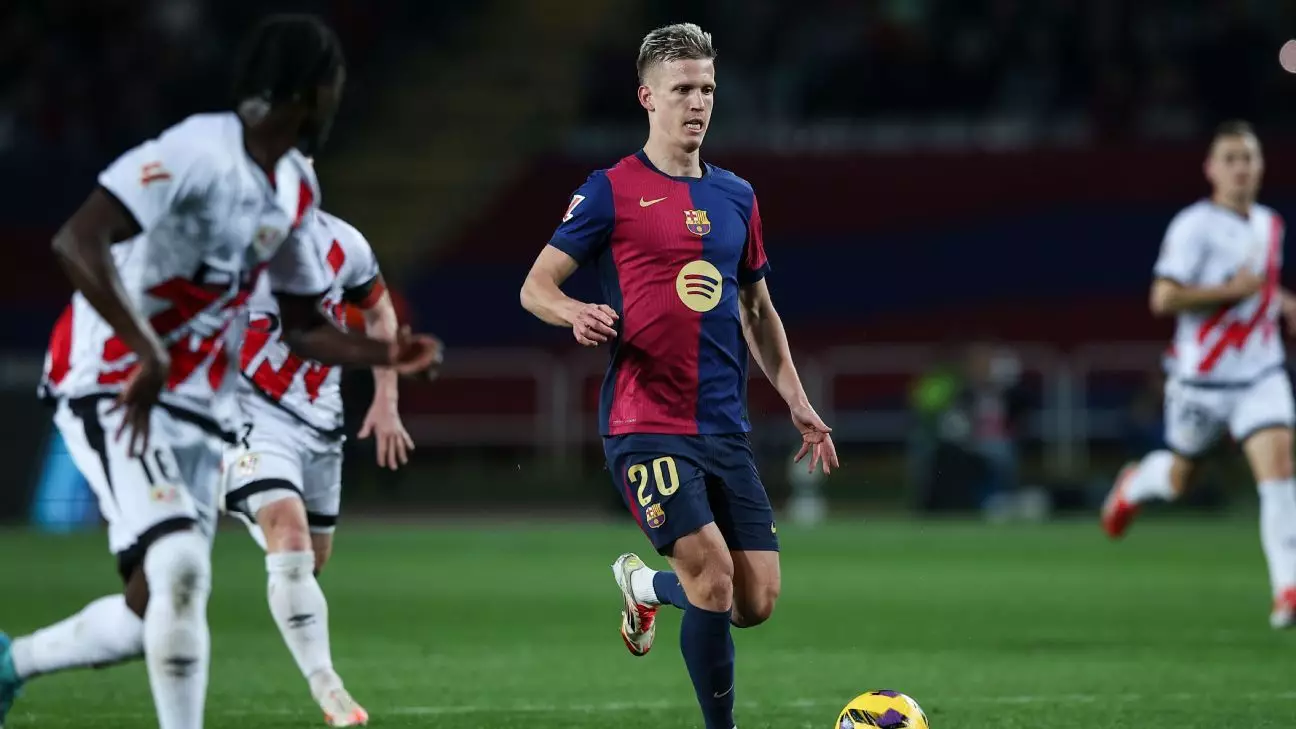The ongoing saga surrounding Barcelona’s roster management has brought to light the chaotic intersection of sports governance and financial regulation. Following a controversial decision by Spain’s sports authority that enabled the club to keep playmaker Dani Olmo and forward Pau Víctor, LaLiga has positioned itself as both a critical player and a challenger in the unfolding drama. The sports authority’s provisional ruling allows these two talents to remain with Barcelona despite the league’s initial refusal based on financial compliance issues. It raises pressing questions about accountability and oversight in football governance.
Barcelona’s response—expressing “surprise and indignation” at what they deem LaLiga’s “inappropriate behaviour”—highlights a deepening rift between the club and the league. The revelation that LaLiga allegedly disclosed confidential details regarding the sale of VIP seats at the Spotify Camp Nou has stirred the pot further, indicating that the boundaries of propriety in sports governance are increasingly blurred.
Financial Irregularities and Scrutiny
At the heart of the dispute lies LaLiga’s challenge to a reported €100 million deal that allegedly fueled the temporary registrations of Olmo and Víctor. The league’s insistence on transparency exposes the precarious financial landscape that many clubs navigate, including giants like Barcelona. Notably, the financial statements submitted by Barcelona to LaLiga were audited by a different firm, sparking concerns over discrepancies that could question the club’s integrity. Such a situation points to a broader concern within LaLiga: how financial mismanagement, whether intentional or accidental, can force clubs into precarious positions, ultimately leading them to make ethically questionable decisions.
The fact that LaLiga is willing to question the auditor’s credibility demonstrates a significant commitment to financial integrity. The league’s assertion that “Barcelona did not have the capacity to register Olmo and Víctor” at the specified times challenges the narrative that clubs can simply amend or navigate around financial regulations. This oversight is critical for maintaining competitive fairness in LaLiga, especially in an era where financial doping can easily destabilize league dynamics and public trust.
Implications for Club Management
If clubs like Barcelona want to thrive, they must rethink their financial strategies to harmonize with strict regulations rather than sidestep them. The current situation reveals that clubs are not untouchable entities; they must adhere rigorously to fiscal responsibilities if they are to avoid detrimental ramifications down the line. This modern sports landscape necessitates a combination of astute financial management and ethical governance. Barcelona’s dismissal of LaLiga’s comments as unauthorized suggests a deeper ongoing issue of communication breakdowns and distrust between clubs and governing bodies.
This unfolding conflict ultimately underscores the pressing need for clearer regulations and robust dialogue within LaLiga. As stakeholders deliberate on this contentious issue, the implications for clubs struggling with financial viability could influence not only their immediate futures but the broader health of the league itself. The stakes could not be higher, as public perceptions and institutional integrity hang in the balance.

